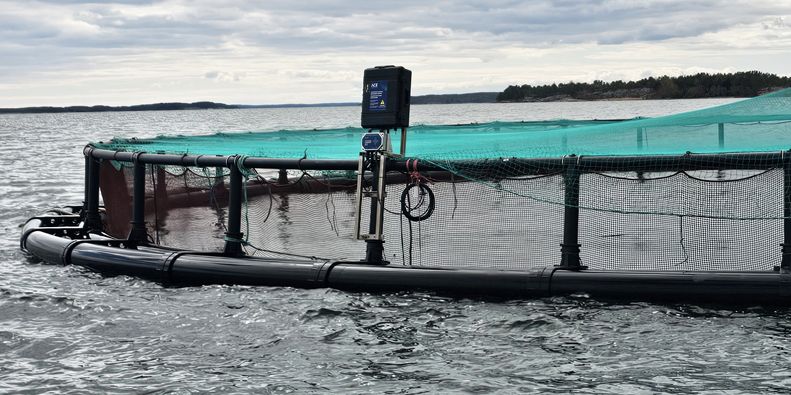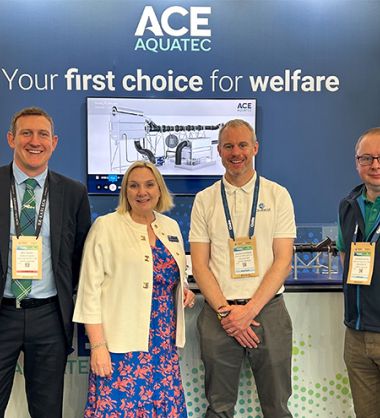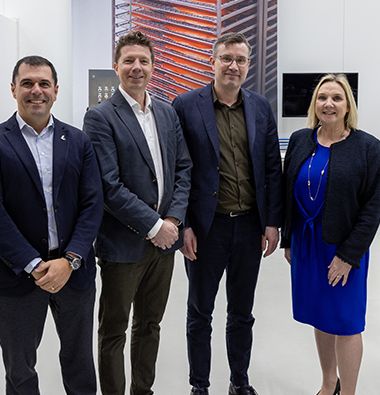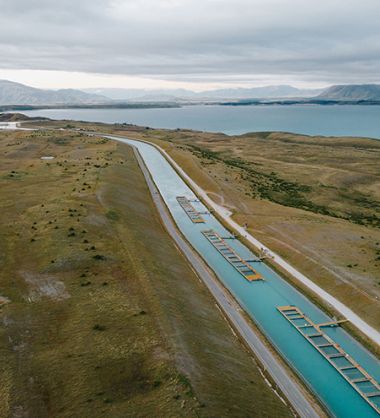Biomass technology rises to the challenge in Tasmania’s testing conditions
04 July 2025

Ace Aquatec’s underwater camera, A-BIOMASS®, has demonstrated the potential of the technology to transform farming operations in Tasmania, according to salmon farmer Petuna.
One of the three big Australian salmon producers, Petuna farms at two locations, in the Tamar River estuary at Rowella and in Macquarie Harbour, with both environments presenting specific challenges for any camera system. The company has been surprised at the ability of A-BIOMASS® to adapt to Tasmania’s unique conditions, said Petuna Fish Performance Manager Stuart Atherton.
‘We brought our fish in around 150 years ago and for biosecurity reasons we can’t bring in any further gene stock. Over that period, the fish have evolved in our different temperatures and environments to be more highly conditioned than fish farmed in other nations. But the A-BIOMASS® algorithm shows strong potential to accurately size up the weight of our salmon.’
Petuna, which harvests around eight thousand tonnes of Atlantic salmon a year, used A-BIOMASS®, first at Rowella, which has 22 square steel pens of 36m by 36m.
‘Over 14 days, we moved the camera across three pens of large fish and one pen of young fish. In a manual weight check, we would weigh around 300 fish in total, which takes three staff. With 22 pens and regular sampling that adds up to a lot of labour.
‘But with this system, we were measuring upwards of 8,000 fish in one day just by putting the camera into the water and turning it on. There was no fish handling, and the fish didn’t even know they’d been weighed. It was great!’
At Petuna’s farm at Strahan in Macquarie Harbour, which has up to 60 pens during peak stocking, the challenge for the A-BIOMASS® camera was the area’s low light levels created by high levels of tannins throughout the water column.
‘The water that flows into Macquarie Harbour has a lot of tannins in it and so the problem to overcome was to find a camera that was capable of seeing and measuring fish in those very low light conditions,’ said Atherton.
‘I’ve been weight checking fish in Strahan for about five years and there have only been a few times when I’ve been able to see fish swimming in the pens. The camera has shown strong potential to be able to see and measure the weight of the fish. Results from the first pen were very close to those measured by our manual sampling.’
‘The other thing we’re aware of is that the average weight is being measured by an AI algorithm and that’s machine learning, so the accuracy it’s reporting at the moment isn’t necessarily what we could achieve going forwards, once it’s accrued more data, and the machine has learnt more.’
Atherton first discussed biomass technology with Ace Aquatec CEO Nathan Pyne-Carter several years ago and while he found the concept interesting, Petuna did not pursue it further at that stage. But as the world of AI has grown, the company embarked on a quest for a biomass camera suitable for its operations in Tasmania.
‘We spoke to about five or six different providers, weighed up all the options – the camera’s capabilities, the costs, how amenable the supplier was to working with us to gain proof of concept that the equipment would indeed work in our environment – and Ace Aquatec was the best fit, using a local partner to install the system.
Although Petuna’s salmon are selectively bred for thermal tolerance, during the summer months, when water temperatures increase, the fish are fragile.
‘We can’t handle the fish, we can’t weigh them, we don’t know how big they are, we don’t know how they’re faring in terms of their average weight and their health. So, to have a system that can report the weight of the fish with a non-invasive method will allow us to keep a much better eye on the health and welfare of the animals.’
Going forwards, Petuna is interested in what the camera has to offer in terms of spotting potential health issues and quantifying problems on the basis of a much larger number of observations than could be obtained manually.
‘For example, if we have a skin health issue in a pen, having a system that quantifies what per cent of the stock has that issue is a valuable piece of information because it allows us to formulate plans to mitigate the problem,’ said Atherton.
He believes the use of AI will improve farming efficiencies ‘quite substantially’ at Petuna and will benefit animal ethics across the sector.
‘If you catch a fish in a net and anesthetise it, weigh it and then wake it up and put it back in the pen, it’s gone through a stress event and it’s not going to feed properly for the next couple of days or grow as well as it could have done.
‘If it was just being filmed by an AI camera and assessed without ever being taken out of the water it’s going to be a much happier fish.’


